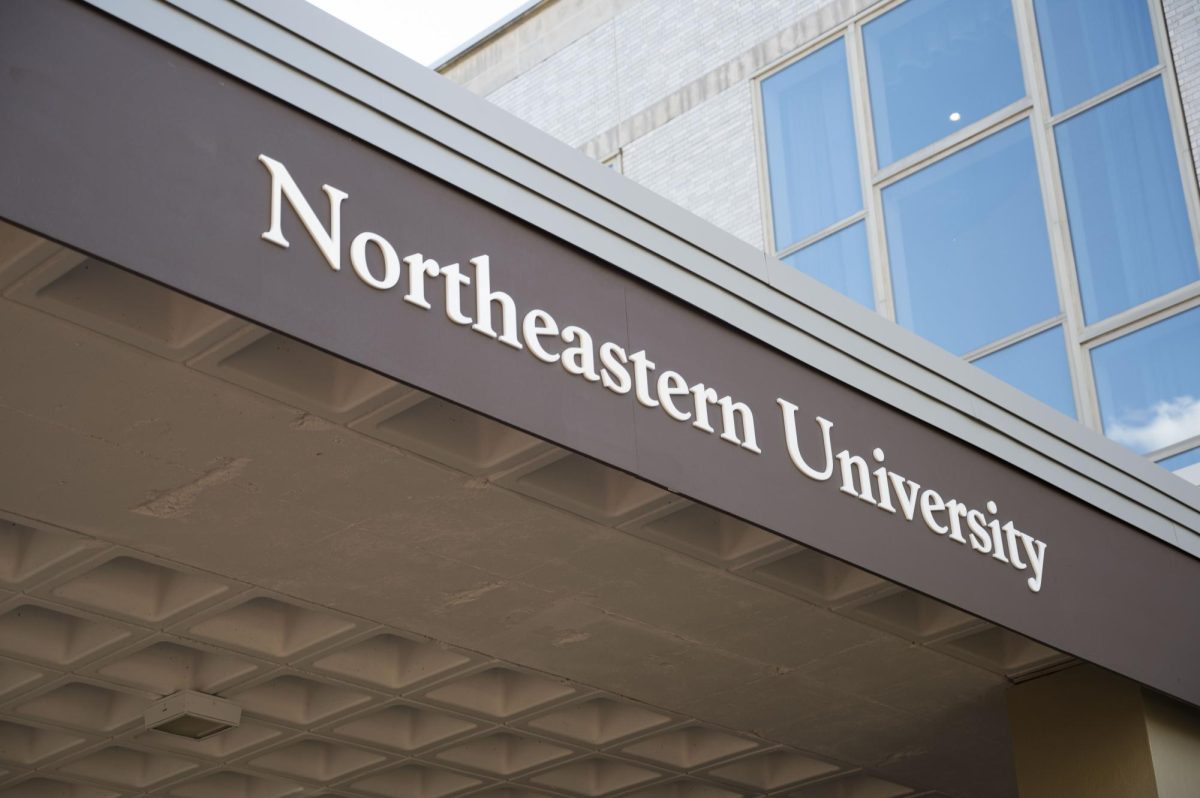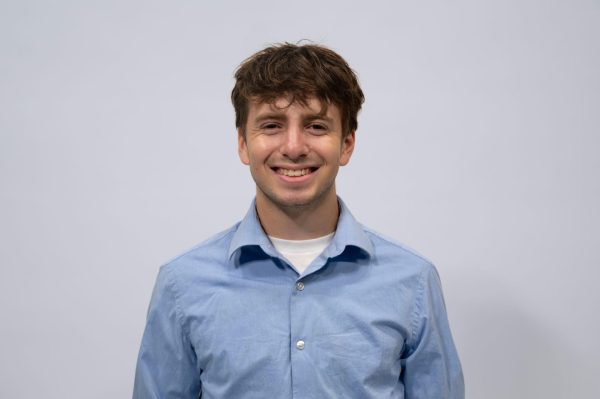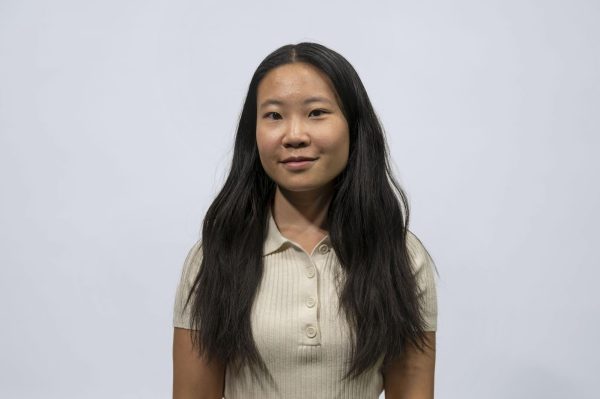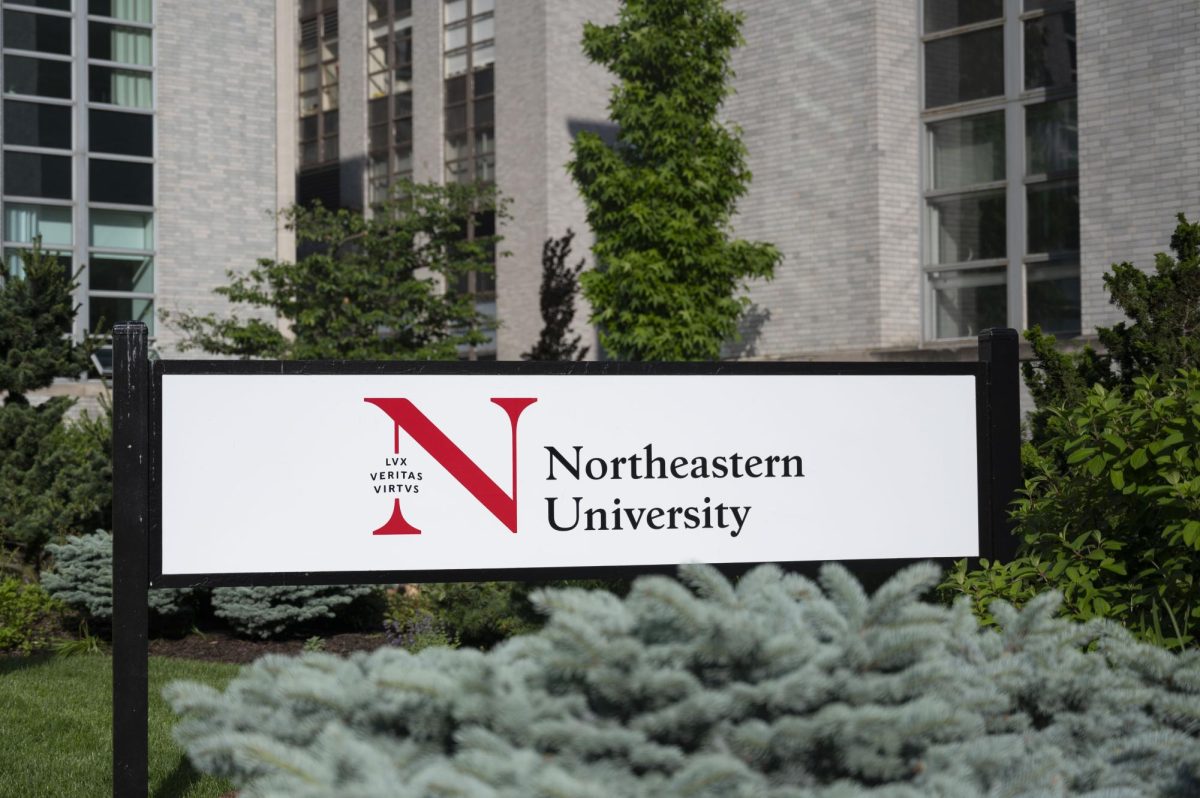Following weeks of tense discussion on academic freedom and freedom of expression, members of Northeastern’s faculty senate voted overwhelmingly Nov. 20 to reaffirm the body’s commitment to academic freedom, add a representative to the university’s policymaking board and create a committee to review Northeastern’s freedom of speech policies.
Roughly 40 senators voted on the three resolutions, marking the first actionable steps by the senate after three consecutive meetings wherein faculty expressed deep concern over Northeastern’s recently published freedom of speech policies and “signals” sent from university administration indicating disapproval of professors’ participation in on-campus demonstrations.
The university’s recent implementation of new demonstration policies, which faculty say took place without their input, has spurred frustration among professors across the university. Notably, faculty have discussed Northeastern’s demonstration policy, published in August, and outdated language on freedom of speech and academic freedom in Northeastern’s binding documents.
In previous meetings, faculty also called out university administrators for sending “signals” that implied opposition to professors’ involvement in demonstrations.
The three resolutions, which all passed without opposition, address specific issues faculty had raised during past meetings. The first resolution the senate voted on creates an academic freedom ad hoc committee which will review the university’s free expression and demonstration policies and provide recommendations to administration. It also calls for “the strengthening of policy language in the Faculty Handbook in the Statement on Free Expression.”
Chair of the faculty senate’s agenda committee Heidi Kevoe-Feldman told The News the ad hoc committee will become an official group and receive its charges — the goals the committee is tasked with completing — once it is staffed with volunteer faculty, which she anticipates will be finalized sometime in January. She said that any faculty can volunteer to be on the committee, and at the moment, the goal is to have five members with one faculty senator.
“If we have 5 volunteers and only 5, then that’s the committee,” she said in a follow-up email to The News. “If we have more than 5 then the SAC will review the volunteers to determine the configuration. We will also have a faculty senator on that committee – to be determined as we would need to ask senators who want to serve.”
Kevoe-Feldman added that a survey seeking volunteers for the committee will be announced at the senate’s next meeting Dec. 11. She said she hopes the committee is made up of faculty who are both familiar and new to the ongoing conversations on academic freedom.
“It’d be nice to get a good mix of faculty who are familiar with the background story … and people who might not be,” Kevoe-Feldman said. “Then, collectively come up with a plan that can really, truly satisfy people where faculty feel they are protected.”
The senate agenda committee, or SAC, which oversees the operations of the senate, is currently workshopping charges based on the resolution and previous discussions, Kevoe-Feldman said.
The second resolution affirms the senate’s commitment to free speech for university affiliates and calls on university administration to consult the senate “in the formulation and publication of any policies and external communications affecting freedom of speech.”
Faculty members, citing Huntington News reporting, previously called out the university’s communication of its demonstration policies, which initially stated that the institution required that faculty seek the provost’s approval to participate in demonstrations and encouraged students to report faculty for perceived political bias.
The third resolution calls on the faculty senate agenda committee to nominate — and add, with Provost and Senior Vice President for Academic Affairs David Madigan’s approval — a faculty senator to the university’s policymaking body, the Policy Oversight Committee.
According to the resolution, the senator representative would help provide faculty perspective to the Policy Oversight Committee and help communicate information from the committee back to the senate.
Kevoe-Feldman said that the SAC is “currently working on the logistics of finding a senator to appoint to the committee,” and anticipates the senator representative will be added to the committee “early next year.” She said in the email that the SAC will send out an email calling for nominations and self-nominations for the position. After the SAC reviews the nominations, they will send the names to Madigan “who will make the final determination.”
While some senate resolutions require approval from the university’s provost or the Northeastern Board of Trustees to be implemented, the resolutions creating an ad hoc committee and affirming the body’s commitment to free speech only required approval from the senate itself, Kevoe-Feldman said. She added in the email that “the formation of the [ad hoc] committee has the provost’s full support.”
The resolution adding a faculty representative to the university’s Policy Oversight Committee requires Madigan’s approval, according to Kevoe-Feldman — which she said he is likely to grant. Madigan also indicated support for the provision during previous senate meetings.
The day of the meeting, Northeastern Global News, the media outlet run by the university’s external affairs office, published an interview with Madigan conducted by Northeastern’s Director of Media Training and Strategic Initiatives Joanna Weiss. In the interview, Madigan said that the university remains committed to freedom of expression and the cultivation of dialogue but that there exists a balance between the university’s ability to conduct its day-to-day operations and affiliates’ ability to express themselves.
“The university imposes no limitations upon the freedom of faculty members in the exposition of the subjects they teach, either in the classroom or elsewhere,” Madigan said in the interview.
Madigan did not respond to a request for an interview for this story and a university spokesperson directed The News to his interview with Northeastern Global News.
The three resolutions were finalized during a Nov. 6 elected senators meeting where attendees focused on creating clear, actionable proposals the senate could work to immediately implement, Kevoe-Feldman told The News. The meeting took place after the senate initially postponed a vote on a resolution to strengthen freedom of speech language Oct. 30.
In past meetings, members of the SAC have encouraged concerned faculty to focus their frustration with administration and specific policies on tangible actions that the senate can realistically implement — a sentiment Kevoe-Feldman reaffirmed during her interview with The News.
“I’m more interested in ‘Is this a resolution that is clear and actionable that we can put into practice right away?’” Kevoe-Feldman said.
The faculty senate is set to discuss the creation of the academic freedom ad hoc committee and the Policy Oversight Committee’s senator representative during its next meeting, according to the agenda for the Dec. 11 meeting.
The Huntington News is dedicated to serving the Northeastern University community with original, professional reporting and creating an environment in which student journalists can learn from one another. Support an independent, free press at Northeastern University with your donation today.












